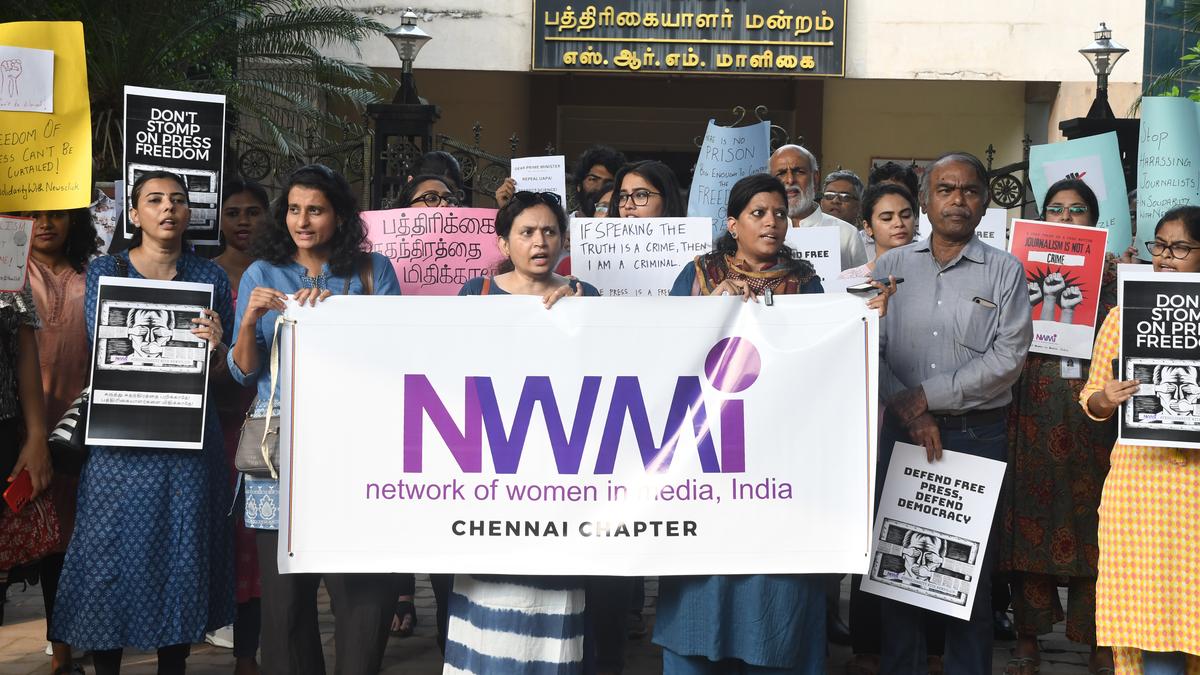
Women journalists’ group NWMI releases guidelines to enhance safety and equity in newsrooms
The Hindu
NWMI introduces guidelines for improving workplace conditions in Indian newsrooms, focusing on safety, equity, and fair treatment for journalists.
The Network of Women in Media, India (NWMI) has introduced a new set of guidelines aimed at improving workplace conditions in newsrooms across the country. These guidelines are designed to address the need for enhanced safety and equity for journalists, reinforcing the importance of protecting their rights as both individuals and professionals.
Media organisations in India face several critical issues related to employee treatment and labour rights. According to the guidelines document released on August 15, reports from network members highlight widespread problems, including humiliation and harassment, where abusive behaviour from senior staff is often tolerated and justified by claims of past experiences. Disparaging comments based on personal attributes such as caste, gender, and sexuality are also common, with women and LGBTQIA+ individuals facing the brunt of these attacks.
One of the key aspects of these guidelines is adherence to legally sanctioned work hours. According to the Occupational Safety, Health and Working Conditions Code, 2020, journalists should work no more than 144 hours over four consecutive weeks, with at least one day off each week. Any work beyond this limit should be recognised as overtime, the document suggests.
The guidelines also stress the importance of fair and regular salaries. Media organisations are expected to provide compensation that reflects the professional nature of journalism, considering the education, skills, and experience required for the role.
The NWMI guidelines suggest that salaries should be benchmarked against comparable industries and adjusted for cost of living and inflation. Transparency in job postings regarding financial compensation is also mandated.
Recommendations
Employees should receive a minimum of 30 days of paid leave annually, encompassing various types such as earned, casual, sick, and festival leave. The guidelines also cover health-related leave, including mental health and menstrual leave, and ensure compliance with legal provisions for maternity, paternity, and childcare leave.

The girl, who was admitted to Aster CMI Hospital with alarming breathlessness and significant pallor, was diagnosed with Wegener’s Granulomatosis (now known as Granulomatosis with Polyangiitis or GPA), a rare autoimmune condition that causes spontaneous bleeding in the lungs, leading to acute respiratory failure.

ACB files case against IPS officer N. Sanjay in Andhra Pradesh. The official is accused of manipulating the tender processes for awarding contract for development and maintenance of AGNI-NOC portal, and conducting awareness meetings for SC/STs. It is alleged that the total value of properties stolen, or involved in the case is estimated at ₹1,75,86,600.









